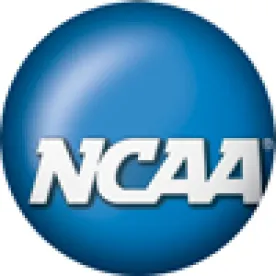The NCAA is no stranger to legal challenges against its amateurism model. Fresh off a couple of significant victories in 2015, the NCAA and its private Division I member institutions were in court again – this time to defend against a claim that its current and former student-athletes are employees who are owed wages under the Fair Labor Standards Act (FLSA). The NCAA and its fellow defendant institutions once again enjoyed victory as a federal court in the Southern District of Indiana ruled in their favor on February 16, 2016.
Background
Three former track and field student-athletes from the University of Pennsylvania (Penn) sued their alma mater, the NCAA and all other Division I universities, claiming they were entitled to a minimum wage salary for performing “work” related to their duties as student-athletes under the FLSA. The complaint, filed in the United States District Court for the Southern District of Indiana, asked for unpaid wages and other liquidated damages pursuant to the FLSA. The plaintiffs amended their lawsuit to include just the private universities who are members of Division I, Penn and the NCAA. At the heart of their complaint lies a 2010 intern fact sheet produced by the Department of Labor (DOL), which sets forth a test intended to determine whether certain internships qualify as employment under the FLSA. The plaintiffs claimed the court should use the DOL intern fact sheet to conclude that student-athletes for Division I private universities are in fact subject to minimum wage and overtime payments.
Key Issues
In granting the defendants’ motion to dismiss, Judge William T. Lawrence tackled three key issues:
1. Who are the appropriate defendants?
While the plaintiffs name the NCAA and other private Division I institutions as defendants in their lawsuit, the court held that the plaintiffs did not have standing to sue any entity other than Penn. The former student-athletes failed to allege that the NCAA or institutions they did not attend were their employer under the FSLA. As a result, Judge Lawrence dismissed the non-Penn defendants due to a lack of subject matter jurisdiction.
2. What standard should be applied to determine whether the student-athletes are employees of Penn?
The plaintiffs aimed to paint the picture that summer two-a-days and weight lifting sessions are the same in effect as selling programs, working concessions and other jobs that students often perform on campus. Judge Lawrence concluded that even if student-athletes deserved to be categorized as workers, the FLSA is not intended to protect them as such.
As mentioned above, the plaintiffs argued that the court should apply the criteria in the DOL intern fact sheet from 2010 to determine that the student-athletes are in fact employees entitled to wages under the FSLA. The Court, however, disagreed and instead relied on a more flexible test favored by the Seventh Circuit in reaching its determination that student-athletes are not employees under the FLSA.
In rejecting the plaintiff’s argument that the DOL fact sheet should be used to make this determination, the Court pointed out that the fact sheet addresses internships for private companies only, while the plaintiffs rested their argument on relating student-athlete participation to student-worker employment. Judge Lawrence noted that courts in multiple circuits have rejected both the DOL’s intern fact sheet test and the DOL trainee handbook test before it in favor of more flexible tests.
As a result, the Court settled on evaluating the “economic relationship” between the student-athletes and Penn to answer the question of whether the plaintiffs should be considered employees of Penn under the FLSA.
3. Are the former Penn student-athletes “employees” for FLSA purposes?
According to the Court, student-athletes are not employees under the FLSA because the NCAA’s model of amateurism clearly defines the economic relationship (or lack thereof) between student-athletes and their schools. Recruits, according to the Court, understand that they will be attending Penn as a student-athlete with no pay before signing their National Letters of Intent, and they have no expectation that employment results from their participation in varsity sports.
In addition, the Court pointed out that the NCAA’s amateurism model is no secret to the DOL, and the fact that the DOL has not taken action against the NCAA or member institutions is evidence in and of itself that the FLSA does not apply to college athletes. Instead, the Court cited an excerpt from the DOL Labor, Wage and Hour Division Field Operations Handbook, which states that student participation in educational opportunities provided by schools is not work and does not result in an employee-employer relationship under the FLSA. Essentially, participation in college athletics is more like being on the debate team than it is holding a student-worker job.
Takeaways
While this case appears to strictly address the question of whether student-athletes are entitled to payment under the FLSA, one broader takeaway is that Judge Lawrence made a point to distinguish student-athletes from employees by characterizing college athletic participation as part of the educational experience. This contextualization of college athletics as a part of the college academic environment mirrors the NCAA’s framing of student-athletes as students first, and not as semi-professional athletes. Whether this framing of college athletics as an educational endeavor was intended by the court or not, NCAA Chief Legal Officer Donald Remy made a point to laud the Court’s alleged recognition that student-athletes benefit from playing sports as part of their overall education. This position will be central to the NCAA’s defense in upcoming antitrust litigation.
It will be interesting to see if Judge Lawrence’s observation that the DOL has not taken any action against the NCAA or member institutions and the significance he ascribed to the DOL’s inaction will spur the DOL to take a stance on this issue. The potential for such a development will be interesting to monitor, particularly given the DOL’s increasingly expansive view of the scope of the FLSA.
One other interesting tidbit from the case is found within a footnote. Judge Lawrence noted his ruling should not be interpreted as an opinion on whether college athletes deserve to be compensated and that the case at hand was not the proper forum for resolving that societal debate.




 />i
/>i

